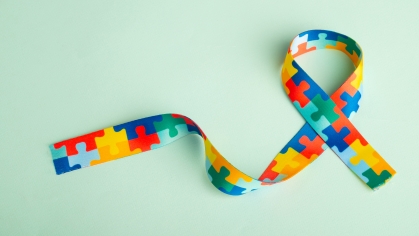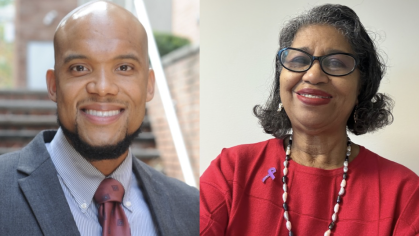By Vimmi Surti, MSW Student
Born in a privileged home setting I encountered friends who were not so privileged as I was. My three school friends with whom I got along the most came from a middle-class family. When I visited their homes, it was filled with laughter, joy, and celebration despite of not having means as I did. I wondered how they were so happy with so less. After high school, I came to the United States. Since I had all the comfort, facility, and luxury back home in my country in India, to survive by myself was a challenge. The entire concept of studying in college and working part-time to support myself was alien to me. I started my journey with community college and working part-time as a cashier in Barnes and Noble. Thereafter, four-year college and working part-time from sales associate, to waitress, to librarian. My grades were not great, and I was falling apart. In my 17 years in India, neither was I a great student nor did I have to work to pay bills. In the U.S I had to deliver both to survive. Since I was not on par with the basics, I collapsed many times. From withdrawing classes in between the semester, to paying debt in my undergraduate program, each step was met with inefficiency. It was then the idea of helping people like me was born in my head and heart. The journey of social work had begun way before I decided to pursue social work education.
The significance of Asian Pacific Islander Desi American Heritage Month to me personally is about staying connected with my own roots - home, culture, and restoring the feeling of belongingness. In my undergraduate studies at the University at Albany, I volunteered my time in the Indian Student Organization, Muslim Student Association, and Asian American Alliance. From rejoicing Indian festivals like Diwali, Holi, Navratri, to performing Indian Bollywood songs, making egg curry during Ramadan Iftar, and cooking daal and rice for 10 students made me feel home and helped me overcome cultural shock. I believe those connections and experiences helped me survive four-year college.
Although the United States is considered a melting point for immigrants, it is equally true that to melt one needs to feel like home. Some people have the innate ability to establish oneness quickly whereas many may take years. Either way, if a platform of one’s own culture is given or created, the process of adapting in a foreign country becomes fast and easy.
Some of the ways social work students can observe Asian Pacific Islander Desi American Heritage Month is by hosting various virtual and in-person events. For example:
- South Asian film and other ethnic film festivals should be organized for social work students. Movies are an excellent medium to experience a different culture. Human problems are the same regardless of country or culture and yet each ethnicity has its own complexities, expressions, and solutions for overcoming social challenge. Social work students can learn a lot from a film festival based on different ethnicities.
- An idea exchange program should be developed using the TED Talk format where social work students can participate and speakers from different cultures can present their art or ideas.
- A food and music festival can also be organized where social work students can have a fun time exploring different cultures while gaining valuable insights into different ethnicities.
- A book club based on different ethnicities can be organized which will facilitate exposure to culture-specific literature and it will also propel students to understand different ethnicities and apply this knowledge in their own work.
- Social workers and social work students can create an online community and organize local events that help white American and ethnic American people to connect and celebrate.
- Social work students can do fundraising activities and do street performances as well for the cause of "Unity in Diversity."
- Under-privileged people and/or victims (both white and ethnic) can be given gift hampers during the month and each year can be dedicated to some specific causes and they can be highlighted through various online and real-time events.
- Social workers and students can also create videos about the positive impact of their work and share with local and online communities.
One of the ways I was curious to learn about other people’s cultures was by visiting worship places like churches, temples, mosques, and Buddhist temples. It fascinated me how bread and wine was important in church, prasad in temple, prayer in mosque, and serenity of inner and outer peace in the Buddha statue.
Overall, social workers can bring more awareness by showcasing the best of each culture may that be Indian, Chinese, Philippine, or Japanese. Culture showcases the importance, tradition, and practices of its people and region. Social workers can come up with cultural exchange modules, newsletters, and events to help people of all communities learn about each other’s culture and grow together by building a community.
This story was created in partnership with Rutgers School of Social Work's Inclusion, Intersectionality, Diversity, Equity, and Advancement (IIDEA) Committee in support of our commitment to diversity, equity, and inclusion.



